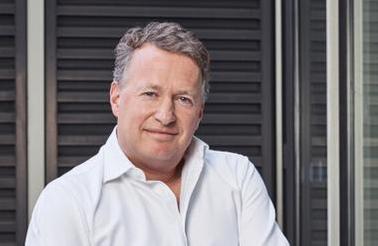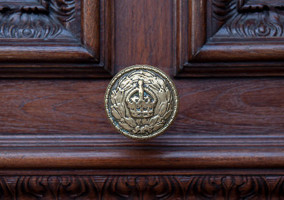Later this week the Digital, Culture Media and Sport (DCMS) Committee will grill Orlando Fraser, who is the government’s preferred candidate to be the next chair of the Charity Commission.
This is the second pre-appointment hearing the committee has held for the role in the space of six months after the original appointment fell apart.
As a former board member Fraser already knows both the regulator and the sector he is hoping to oversee.
The Charity Commission has been without a permanent chair for over a year, with Ian Karet in post as interim chair since early 2020.
Fraser, applied last year and was shortlisted and interviewed at the same time as Thomas in the autumn.
Thomas withdrew from the appointment in December, after a report in the Times about events at a charity while he was chair. Earlier this month Nadine Dorries, culture secretary, named Fraser from the reserve list of appointable candidates.
Experience
Professionally Fraser has been a commercial barrister for nearly 30 years, practising at 4 Stone Buildings. He was appointed Queen’s Counsel in 2014, which is a recognition of excellence in advocacy in the higher courts.
Fraser also has a long-standing commitment to the charity sector. In 1992 he took part in an aid convoy to Bosnia to help the Muslim population there.
Since then, he has served on the management committee of a West London refuge for women victims of domestic abuse, and was a governor of Ilfracombe College. For a time, he was also involved with NCVO’s advisory council.
In the aftermath of the Grenfell Tower fire in 2017, he was an active volunteer with the Rugby Portobello Trust.
Establishment figure
Fraser is extremely well-connected in political and establishment circles.
He is the son of the author Lady Antonia Fraser and the late Tory MP Sir Hugh Fraser, and in 2006 he married Clemmie Hambro, who was a bridesmaid for Princess Diana and whose great grandfather was Winston Churchill.
Coverage of their wedding in the Independent described it as “the society event of the year” with David Cameron, then prime minister, among the guests.
“No fewer than three dukes - Marlborough, Roxborough and Devonshire - were also in attendance, along with a dozen peers and MPs from both sides of the House,” the Independent reported.
In 2005 he stood as a Conservative Party candidate and later acted as an adviser to the Conservative Party on voluntary sector issues, which was declared when he was appointed to the board.
Fraser is a founding fellow of the Centre for Social Justice, which was set up by Conservative MP Iain Duncan Smith. Fraser chaired its voluntary sector working group for the report Breakthrough Britain.
Track record with the Charity Commission
Between 2013 and 2017 he was one of the Commission’s two legal board members, under William Shawcross’s chairmanship.
During this time, the relationship between the regulator and the charity sector was particularly strained.
In 2015 the Commission asked Joseph Rowntree Charitable Trust to issue a statement saying that it would not fund Cage at any point in the future, after the campaign group made controversial statements.
Charities objected and Cage brought a judicial review, which was only dropped when the regulator issued a statement saying: “The Commission recognises that it has no power to require trustees to fetter the future exercise of their fiduciary duties under its general power to give advice and guidance.”
In another example of the board being forced into a u-turn, the Commission withdrew guidance for charities campaigning during the Brexit referendum, after it was challenged by lawyers and sector experts.
During this period questions were also raised about the composition of the board, with a lot of individuals having close links to right-leaning think tanks.
At the time the chief executive of NAVCA, Neil Cleeveley warned the Commission was “losing the trust of those they regulate”.
Sector thoughts
The above links with the Conservative party and the track record of the Commission while he was a board member, have, naturally, raised some eyebrows in the sector.
As such, Debra Allcock Tyler, chief executive of the Directory of Social Change (DSC), has written to the DCMS Committee suggesting questions they could ask about these topics.
Andrew Purkis, a former Commission board member and trustee of DSC, was quite forthright in a blog last week, concluding: “For my part, I cannot see that a person associated unambiguously with a particular political party, and above all with such a very poor track record in the actual practice of charity regulation under political pressure, can be seen as a worthy candidate.”
Elsewhere NCVO and ACEVO’s chief executives expressed concern about how the process was conducted.
Sarah Vibert of NCVO acknowledged Fraser’s extensive experience, but nonetheless said she was “disappointed that the government has not taken this opportunity to appoint a person with full political independence”.
Meanwhile, Vicky Browning from ACEVO expressed frustration that the process had not been re-run.
“Transparent and robust recruitment is vital in ensuring trust in the regulator,” Browning said.
“Given the challenges of the previous recruitment process, this approach would have allowed the new chair a fresh start, and an opportunity to rebuild a strong relationship with the sector as well as address issues around the diversity of the shortlist and new due diligence commitments.”
However, it is worth noting that Fraser is not without supporters from the sector.
Kevin Curley, a former chief executive of NAVCA, with extensive experience in the sector recalls Fraser’s involvement with charities while Fraser was working with the CSJ and thinks he will make a good chair for the regulator.
He told Civil Society News: “Like Duncan Smith, he understood how small local charities could reach, represent and mobilise vulnerable people and alienated young people in ways that the state and big charities could not.
“Sadly, the austerity agenda of Cameron and Osborne from 2010 meant that the Big Society idea - and support for local charities and community groups especially from local authorities - was fatally undermined. But that wasn't Orlando's fault - he had the right ideas in my view but he couldn't win the argument in the face of the huge cuts to local government funding.”
More recently Mark Simms, CEO of P3 and the Rugby Portobello Trust, says Fraser offered “tremendous help” to victims of the Grenfell Tower fire.
Fraser and his wife lived in the area and had been occasional volunteers. They turned up in the morning to help.
Initially, he “organised the menswear department” helping survivors find suitable items from the donations.
But he didn’t stop there. “We had a lot of ladies who didn’t have bras,” Simms says. “He went himself to Oxford Street and bought all the bras that Primark had.”
Fraser also helped with driving people to hotels and made himself available when needed.
“He was there more than full-time for more than six weeks,” Simms says.
In his own words
When he was unveiled as the government’s choice, Fraser said: “As I know from experience, the Charity Commission is a much-respected independent regulator, supervising world-class charities. I am honoured to be offered the responsibility of chairing it going forward.”
Indeed, Fraser set out his commitment to the independence of the charity regulator in an interview with this publication in 2016.
He acknowledged mistakes around the referendum guidance, but pointed out that when issues were raised, “we corrected it quite quickly”.
Despite the prior links with right-wing politicians, Fraser was adamant that the board guarded its independence carefully.
“I have never seen us kowtow to government,” he said. “We take the Commission’s independence just as seriously as we take the sector’s independence. They’re both vital to the wellbeing of charities.”
Regarding his own foray into politics, in 2016, Fraser insisted he was “resolutely and cheerfully non-party political”, and emphasised that he had “much longer and deeper connections to the voluntary sector than I ever had to the Tories”.
What happens next?
This week’s committee scrutiny meeting is a mere formality. When the committee rejected Baroness Stowell’s appointment, the culture minister, then Matt Hancock, pressed ahead anyway.
However, that hearing can set the tone for the next three years. Given the debacle over Thomas’ appointment, it’s likely that MPs on the committee will be taking their scrutiny role seriously.
Related articles











